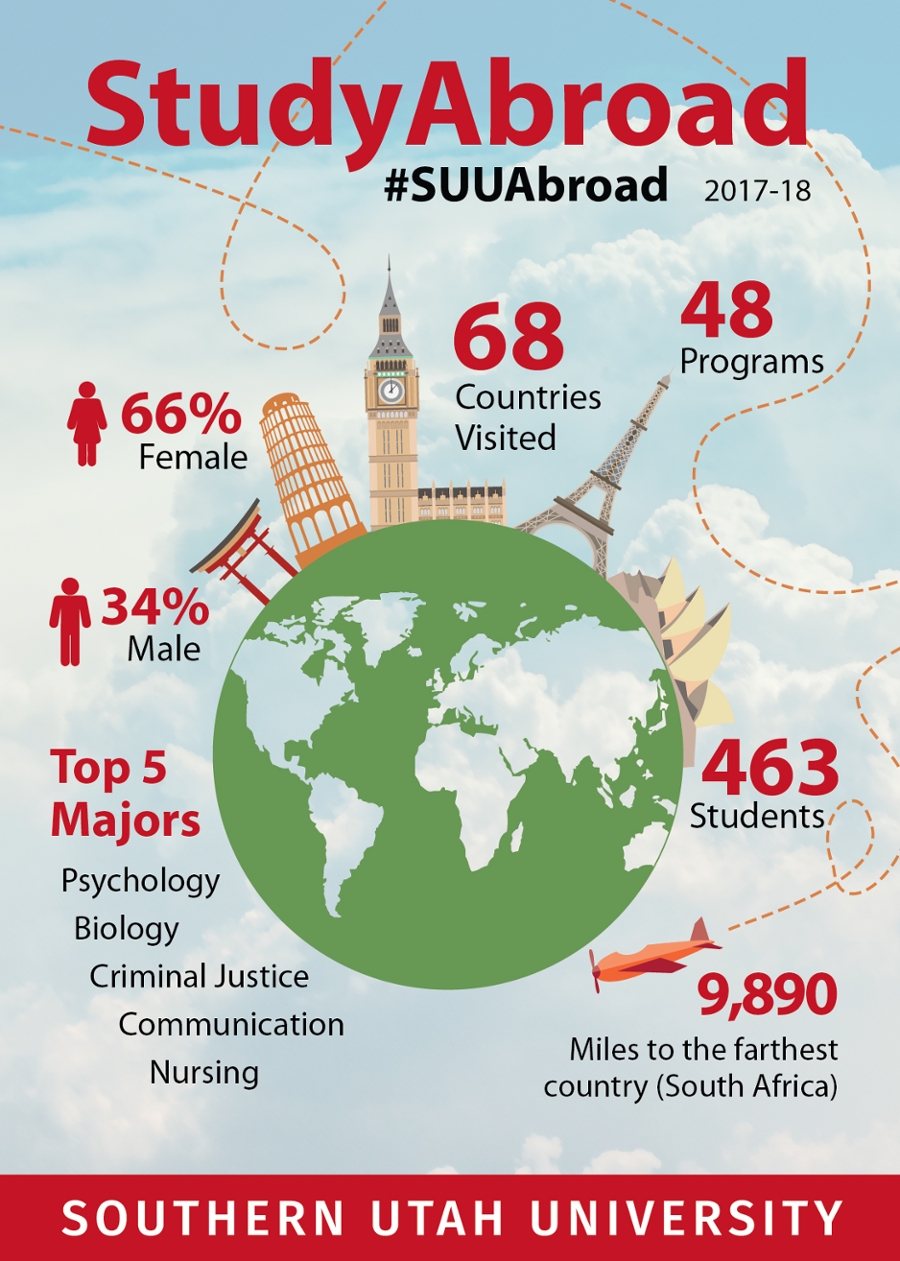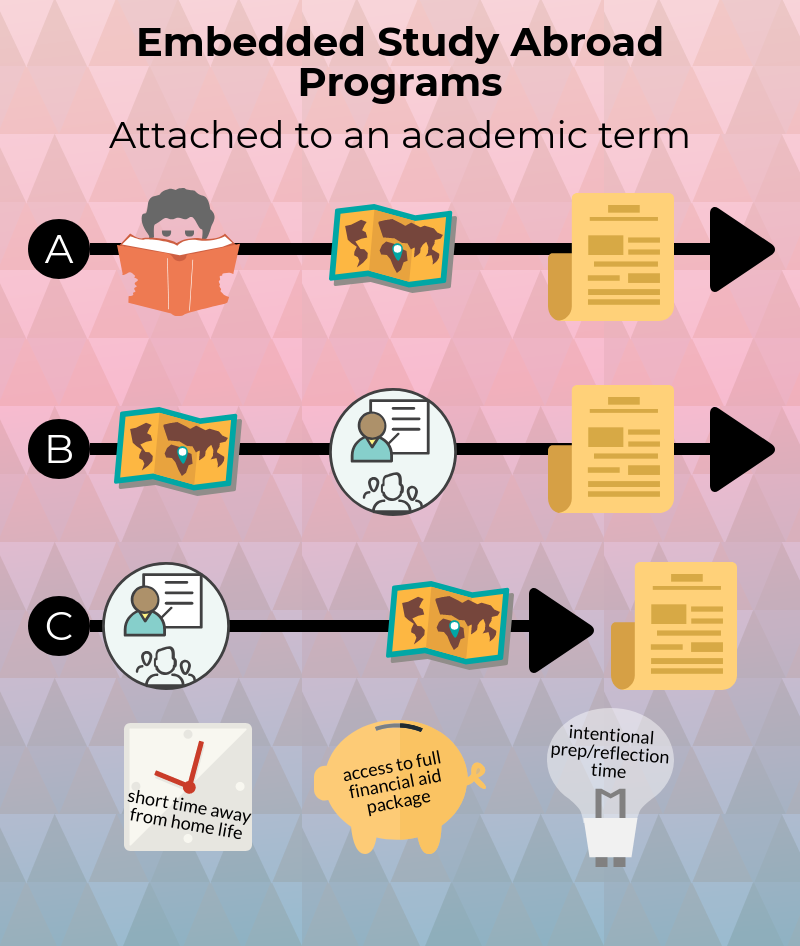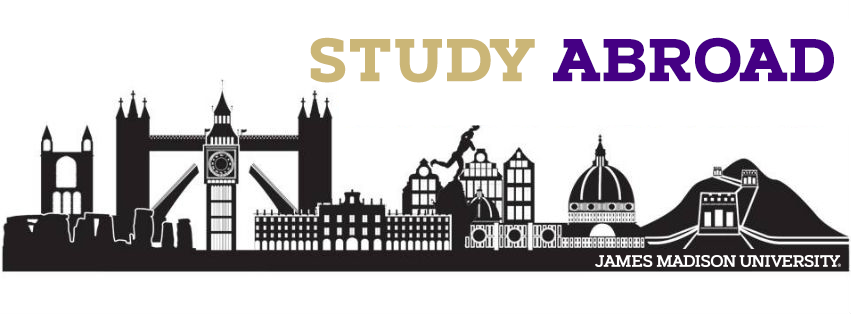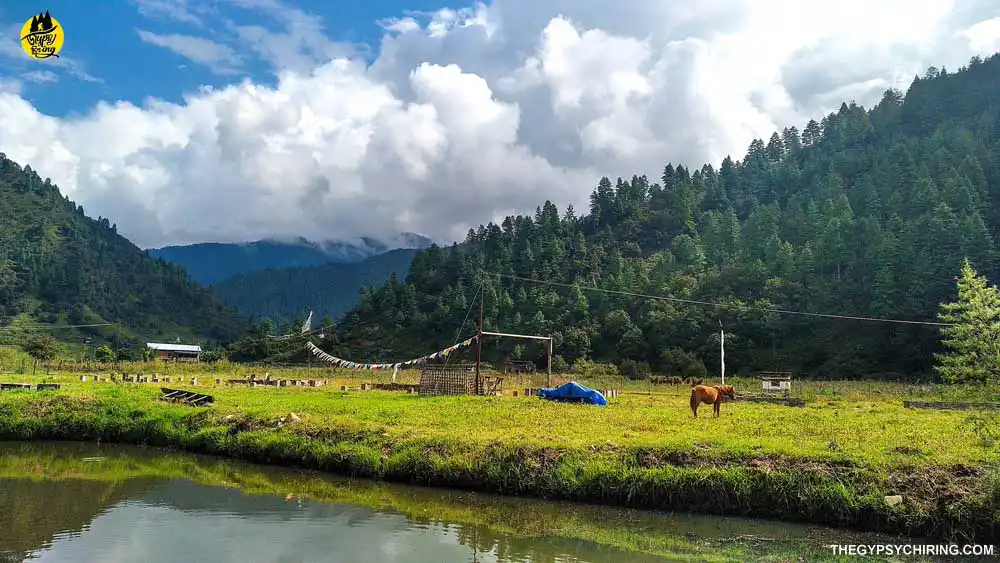Studying abroad can change your life. It offers endless opportunities and experiences.
A study abroad program allows you to immerse yourself in a new culture. You can explore different perspectives and gain valuable skills. Living in another country helps you grow both personally and academically. You get the chance to meet new people and make lifelong friends.
Plus, you can learn a new language and enhance your resume. The experience can be both exciting and challenging, but it’s worth it. Joining a study abroad program can be the adventure of a lifetime. Let’s dive into why studying abroad is a great choice for many students.
Benefits Of Studying Abroad
Studying abroad can be a life-changing experience. It opens doors to new cultures, languages, and perspectives. Many students find that the benefits go far beyond academics. From personal growth to career advancement, studying abroad offers a wealth of opportunities.
Personal Growth
Living in a new country challenges students in many ways. They learn to adapt to different environments. This fosters independence and resilience. Students often develop strong problem-solving skills. They learn to navigate unfamiliar situations with confidence. These experiences build character and maturity.
Exposure to diverse cultures broadens their worldview. It encourages empathy and understanding. Students gain a deeper appreciation for global diversity. This personal growth enhances their overall life experience.
Career Advancement
Employers value the skills gained from studying abroad. It demonstrates adaptability and cultural awareness. These are key traits in the global job market. Students often improve their language skills. This can open doors to international career opportunities.
Networking is another benefit. Students connect with peers from around the world. These connections can lead to job opportunities and collaborations. Studying abroad also shows initiative. It indicates a willingness to step out of comfort zones. This is a quality many employers seek.

Credit: www.suu.edu
Choosing The Right Program
Selecting the best study abroad program can be challenging. Consider your interests, budget, and preferred destination. Research thoroughly to find the perfect fit for your academic goals.
Choosing the right study abroad program is crucial for a fulfilling experience. It involves several key factors. From selecting the ideal destination to picking the program type, each decision shapes your journey. This guide will help you make informed choices.Research Destinations
Start by exploring different countries. Look at their culture, language, and lifestyle. Some students prefer bustling cities, while others seek serene towns. Consider the climate and cost of living. Check safety and local customs. Read reviews from past students. They offer real insights. Think about your academic goals. Some destinations excel in specific fields. Research universities and their rankings. Verify the quality of education. Look at extracurricular activities. They enrich your experience.Program Types
Different types of programs cater to various needs. Exchange programs allow you to study at partner universities. They offer a structured curriculum. Full degree programs let you earn a complete degree abroad. Summer schools provide short-term courses. They are great for sampling the experience. Internships offer practical work experience. Combine study with professional growth. Language immersion programs focus on learning a new language. They enhance communication skills. Research-based programs suit those interested in specific projects. They often involve collaboration with local experts. Choose a program that aligns with your career goals. Each type offers unique benefits.Application Process
Applying for a Study Abroad Program can seem like a daunting task, but don’t worry. With the right information and a bit of organization, you’ll be on your way to an international adventure in no time! Let’s break down the process step-by-step to ensure you have everything you need for a successful application.
Required Documents
First things first, gather all the necessary documents. This part might feel like a treasure hunt, but it’s crucial for your application. Here’s a list of common documents you’ll need:
- Passport: Ensure it’s valid for at least six months beyond your intended stay.
- Transcripts: A copy of your academic records from your current school.
- Letters of Recommendation: Usually from teachers or employers who know you well.
- Personal Statement: A brief essay explaining why you want to study abroad and what you hope to achieve.
- Proof of Funds: Documentation showing you can financially support yourself while abroad.
Each program may have unique requirements, so always check the specific guidelines of the program you are applying to.
Application Deadlines
Deadlines are vital in the application process. Missing them can mean waiting another year for your chance. So, make sure to mark these dates on your calendar:
- Fall Semester: Applications typically due by March 1st.
- Spring Semester: Applications usually due by October 1st.
- Summer Programs: Deadlines vary, but often around February 1st.
Remember, these deadlines can vary depending on the program and country, so double-check the specific dates for your chosen program. It’s always a good idea to submit your application well before the deadline to avoid any last-minute issues.
Now that you know the essentials, it’s time to get started! The application process is your first step towards a life-changing experience. So, gather your documents, keep an eye on those deadlines, and get ready to embark on your study abroad journey. Happy applying!
Financial Planning
Embarking on a study abroad adventure is an exciting journey. But, it’s not just about packing your bags and hopping on a plane. One of the most crucial steps in this journey is financial planning. Without it, you might find yourself in a tight spot, far from home. In this section, we’ll explore some essential tips to help you manage your finances, so you can focus on making the most of your international experience.
Scholarships And Grants
Did you know there are many scholarships and grants available for study abroad programs? These can significantly reduce your expenses. Here are a few ways to find them:
- University Scholarships: Many universities offer scholarships specifically for students who want to study abroad. Check with your school’s financial aid office to see what’s available.
- Government Grants: Some governments provide grants for students studying abroad. For example, the Fulbright Program is a great option for U.S. students.
- Private Organizations: Many private organizations offer scholarships. Websites like Scholarships.com can help you find these opportunities.
Applying for scholarships can be time-consuming, but it’s worth the effort. It could mean the difference between struggling financially and having a comfortable experience abroad.
Budgeting Tips
Budgeting might not be the most exciting part of planning your study abroad, but it’s definitely one of the most important. Here are some tips to help you create a budget:
- Know Your Expenses: List all your expected expenses, including tuition, housing, food, travel, and entertainment. Don’t forget to include emergency funds!
- Track Your Spending: Use apps like Mint to track your expenses. This will help you see where your money is going and make adjustments as needed.
- Save Money Where You Can: Cook at home instead of eating out, use student discounts, and look for free events. These small changes can add up to big savings.
- Set Financial Goals: Decide how much you want to save each month and stick to it. This will help you manage your money better and avoid running out of funds.
Remember, a well-planned budget can make your study abroad experience much more enjoyable. It allows you to focus on your studies and new experiences, rather than worrying about money.
In conclusion, planning your finances for a study abroad program is essential. By securing scholarships and grants, and following smart budgeting tips, you can ensure a smooth and enriching experience. Start planning now, and get ready for the adventure of a lifetime!
Cultural Adaptation
Studying abroad is an exciting journey. It brings new experiences and challenges. One significant challenge is cultural adaptation. Adapting to a new culture involves learning new ways of living. This process can be both fun and rewarding. It helps you grow and understand the world better. Let’s explore two key areas of cultural adaptation: language skills and cultural etiquette.
Language Skills
Language is the bridge to any culture. Improving your language skills is crucial. It helps you communicate and connect with locals. Try to learn basic phrases before you leave. Practice speaking every day. Don’t worry about making mistakes. People appreciate your effort to speak their language. Use language apps, watch local TV shows, and listen to music. These activities make learning fun and effective.
Cultural Etiquette
Understanding cultural etiquette is very important. Each culture has its own set of rules and norms. These rules guide social interactions. Learn about the dos and don’ts. For example, in some countries, it’s polite to remove shoes before entering a home. In others, it’s crucial to be punctual. Observe how locals behave. Mimic their actions to show respect. Being aware of cultural etiquette makes you more accepted. It shows you respect their way of life. This effort can lead to lasting friendships.

Credit: www.iie.org
Housing And Accommodation
Choosing the right housing is crucial for a study abroad experience. It impacts your daily life and overall experience. This section will explore different housing options available to international students.
On-campus Housing
On-campus housing is a popular choice for many students. It provides a sense of community. Living on campus makes it easy to meet new people. It also gives you quick access to campus facilities. You can walk to classes, libraries, and dining halls. This option often includes utilities and internet. It simplifies your stay. You will have a support system through resident advisors. They help with any issues you might face.
Off-campus Options
Off-campus housing offers more independence. You can choose from apartments or shared houses. This option allows you to experience local culture. You may find it cheaper than on-campus housing. Remember to consider transportation costs. Public transport or a bike might be necessary. Renting off-campus often means handling utilities and internet yourself. This adds a level of responsibility. It is an excellent way to prepare for life after college.
Health And Safety
When preparing to study abroad, health and safety should be top priorities. Ensuring that you are covered by adequate health insurance, aware of safety precautions, and prepared for any emergencies can make your experience much more enjoyable. Let’s dive into some essential tips to help you stay safe and healthy during your adventure abroad.
Health Insurance
Before you leave your home country, securing comprehensive health insurance is crucial. Some universities and study abroad programs offer insurance as part of their package, but it’s important to verify what is covered.
- Check Coverage: Make sure your insurance covers doctor visits, hospital stays, medications, and emergency evacuations.
- Understand the Process: Familiarize yourself with how to make a claim, the documents required, and the reimbursement process.
- Carry Essential Documents: Always keep a copy of your insurance policy, contact information for the insurance provider, and any necessary claim forms.
Picture this: you’re backpacking through Europe and sprain your ankle. With the right insurance, you can focus on healing instead of worrying about medical bills.
Safety Tips
Staying safe while studying abroad involves more than just looking both ways before crossing the street. Here are some practical tips to keep in mind:
- Stay Informed: Keep up-to-date with local news and be aware of any potential risks in your area.
- Blend In: Try to dress and act like a local to avoid drawing unwanted attention.
- Emergency Contacts: Always have a list of emergency contacts, including local authorities, your embassy, and program coordinators.
- Secure Valuables: Use a money belt or hidden pouch to keep your valuables safe, and avoid carrying large sums of cash.
Imagine you’re navigating a bustling market in Bangkok. By blending in and keeping your valuables secure, you can enjoy the experience without worry.
Whether it’s understanding your health insurance or taking safety precautions, being prepared can make your study abroad journey smoother and more enjoyable. Remember, a little preparation goes a long way in ensuring you have a safe and healthy adventure!
Returning Home
Returning home after a study abroad program can be a mixed experience. You may feel joy about reuniting with loved ones, but also sadness about leaving a new place. This transition period is often filled with various emotions. It’s important to understand and manage these feelings.
Reverse Culture Shock
Reverse culture shock can be a big challenge. You may find that your home feels different. Familiar places and people might seem strange. This happens because you have changed. Your experiences abroad have altered your perspectives.
Friends and family may not understand your new outlook. They might expect you to be the same person you were before you left. This can make you feel isolated. To cope, stay connected with your study abroad friends. They understand what you’re going through.
Leveraging Experience
Use your study abroad experience to your advantage. Share your stories and skills with others. Employers value the adaptability and problem-solving skills you gained. Highlight these in job interviews.
Your experience can also benefit your community. Volunteer or join groups that value international perspectives. This can help you stay connected to the global community. It also allows you to use your new skills in meaningful ways.

Credit: www.jmu.edu
Frequently Asked Questions
What Is A Study Abroad Program?
A study abroad program allows students to live and learn in a foreign country. It enhances education through cultural immersion and international exposure.
Which Country Is Best For Study Abroad?
The best country for studying abroad varies based on individual preferences. Popular choices include the USA, UK, Canada, Germany, and Australia.
How Do I Get Into A Study Abroad Program?
Research programs, check eligibility, and choose a destination. Complete application forms, submit necessary documents, and apply for scholarships. Prepare for interviews and obtain a student visa.
Are Study Abroad Programs Worth It?
Yes, study abroad programs offer valuable experiences. They enhance cultural understanding, boost career prospects, and provide personal growth opportunities. Students gain global perspectives and networking benefits.
Conclusion
Studying abroad opens up many new experiences. You gain cultural understanding. You make lifelong friendships. You improve language skills. Plus, you grow personally and academically. These programs are a great investment in your future. Explore the world. Embrace new challenges.
Your journey awaits.






